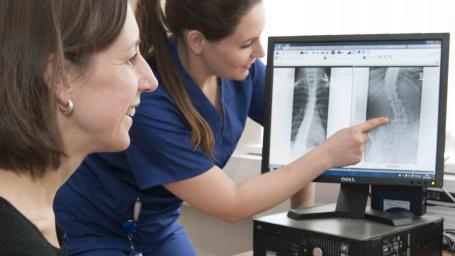COVID-19 Recovery Study
The RECOVERY study has been looking into a series of therapeutic drugs to determine whether they will improve the outcome in patients hospitalised with COVID-19.
Specifically, researchers have been looking at Kaletra, a HIV medication; Tocilizumab, a monoclonal antibody against IL-6; Hydroxychloroquine; Azithromycin; and low-dose Dexamethasone as possible treatments.
Dr Nick Maskell, speaks further on the aims of the RECOVERY study at North Bristol NHS Trust:
(Video taken in March 2020, prior to trial results)
Video Transcript
Hello, I'm Nick Maskell, one of the Chest Consultants at North Bristol NHS Trust, and the local Principal Investigator for the RECOVERY study.
This is a large randomised control trial which is currently recruiting to over 140 hospitals across the UK.
The RECOVERY study is looking at five therapeutic drugs to see if any of these improve the outcome in patients hospitalised with COVID-19. These drugs are Kaletra, a HIV medication; Tocilizumab, a monoclonal antibody against IL-6; Hydroxychloroquine; Azithromycin; and low-dose Dexamethasone.
Currently we've recruited over 80 patients in the Trust to the study, and nationally over 10,000.
I would like to thank all the patients that have participated in this study and the fantastic research team that have helped recruit these patients.
Study Results:
June 2020 Report
The RECOVERY study found that the inexpensive and widely available steroid Dexamethasone reduces death for patients with severe COVID-19 by up to one third. This has rapidly become part of standard-of-care given to all such patients.
February 2021 Report
Additional trial results in have shown that using Tocilizumab, an anti-inflammatory treatment to treat rheumatoid arthritis, reduces the risk of death when given to hospitalised patients with severe COVID-19. The study also showed that Tocilizumab shortens the time until patients are successfully discharged from hospital and reduces the need for a mechanical ventilator.
Thank you to all of our research teams who are making such a different to people’s lives, and also to Southmead Hospital Charity which is raising much-needed funds for COVID-19 research.
Take Part in Research

Become one of the thousands of people taking part in research every day within the NHS.
Contact Research
Research & Development
North Bristol NHS Trust
Level 3, Learning & Research building
Southmead Hospital
Westbury-on-Trym
Bristol, BS10 5NB
Telephone: 0117 4149330
Email: research@nbt.nhs.uk
